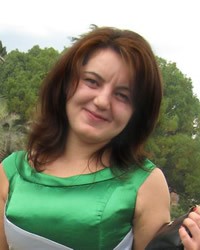Abkhaz in Türkiye (Turkey)

Photo Source:
Apsuwara - Wikimedia
Creative Commons
|
Send Joshua Project a map of this people group.
|
| People Name: | Abkhaz |
| Country: | Türkiye (Turkey) |
| 10/40 Window: | Yes |
| Population: | 150,000 |
| World Population: | 172,600 |
| Primary Language: | Abkhaz |
| Primary Religion: | Islam |
| Christian Adherents: | 0.00 % |
| Evangelicals: | 0.00 % |
| Scripture: | New Testament |
| Ministry Resources: | No |
| Jesus Film: | Yes |
| Audio Recordings: | No |
| People Cluster: | Caucasus |
| Affinity Bloc: | Eurasian Peoples |
| Progress Level: |
|
Introduction / History
Turkey is home to the largest Abkhaz community. While they are scattered throughout much of the country, the largest concentration of Abkhazians is located along the Black Sea coast in north-central Turkey.
In the fifteenth century, Ottoman Turks conquered the Caucasus Mountain region of Russia and Georgia. At that time, many of the Abkhaz converted from Christianity to Islam. The Russians, however, gradually took control of the region, and by the late 1800s, they dominated the Muslim Abkhaz. Feeling threatened by Christian Russia, many Abkhaz accepted an offer of refuge from Muslim Turkey and moved there. In recent years, Abkhaz have begun to be assimilated into mainstream Turkish culture and, as a result, are in danger of losing their identity as a separate ethnic group in Turkey.
What Are Their Lives Like?
Little is known about the lives of Abkhaz in Turkey; however, it is known that they have retained much of their identity. They have somewhat conserved their Caucasian traditions, and unlike even in the Caucasus (or in Europe), they have preserved their caste system, and still resist assimilation. In addition, Abkhaz have retained their native tongue, which is one of the most complex languages on earth. This language has more than 50 consonants, with numerous pronunciations for each one. Because of the difficulty of their own language, the Abkhaz are adept at learning other languages.
The great majority of Abkhaz are farmers and livestock producers. Tobacco is their major crop, but tea, fruits and vegetables are also grown. Cattle production is another important aspect of the Abkhaz economy. Because of their livelihood, nine out of ten Abkhaz live in rural areas. Their houses are built of brick or concrete and have either one or two stories. Most homes have verandas and balconies, where families enjoy spending time in good weather.
Most Abkhaz women marry in their early twenties, but men often wait until their thirties or even forties. Marriage is forbidden with all possible relatives; individuals are not allowed to wed anyone with the same surname as any of their grandparents. In the past, the young man and his friends kidnapped the young woman and took her to his house, where the marriage ceremony was performed. Whether or not the bride was abducted, her family does not attend the wedding. She is required to stand silent and secluded while her husband's family feasts and celebrates.
The Abkhaz highly value hospitality. A guest is given the same respect as a father or grandfather and is seated at a place of honor at the table. The arrival of a guest is accompanied by a ritual feast. Over wine, hosts and guests go through rounds of toasts, honoring each other and getting to know each other better. Providing hospitality in this way is a source of family pride.
What Are Their Beliefs?
Although most of the Abkhaz of Russia and Georgia are Christians, those in Turkey are Sunni Muslims, at least nominally.
What Are Their Needs?
The Abkhaz of Turkey desperately need to hear of the Savior. There are gospel recordings they can hear, but they would need to find them on a computer.
Prayer Points
Pray that Christian literature and media will be made easily available to Abkhaz people.
Ask the Lord to call Christian Abkhaz from Russia and Georgia to share Christ with their brothers in Turkey.
Ask the Lord to save key leaders among Abkhaz who will boldly declare the gospel.
Ask God to raise up intercessors who will stand in the gap for the Abkhaz.
Pray that strong local churches will be raised up among the Abkhaz.